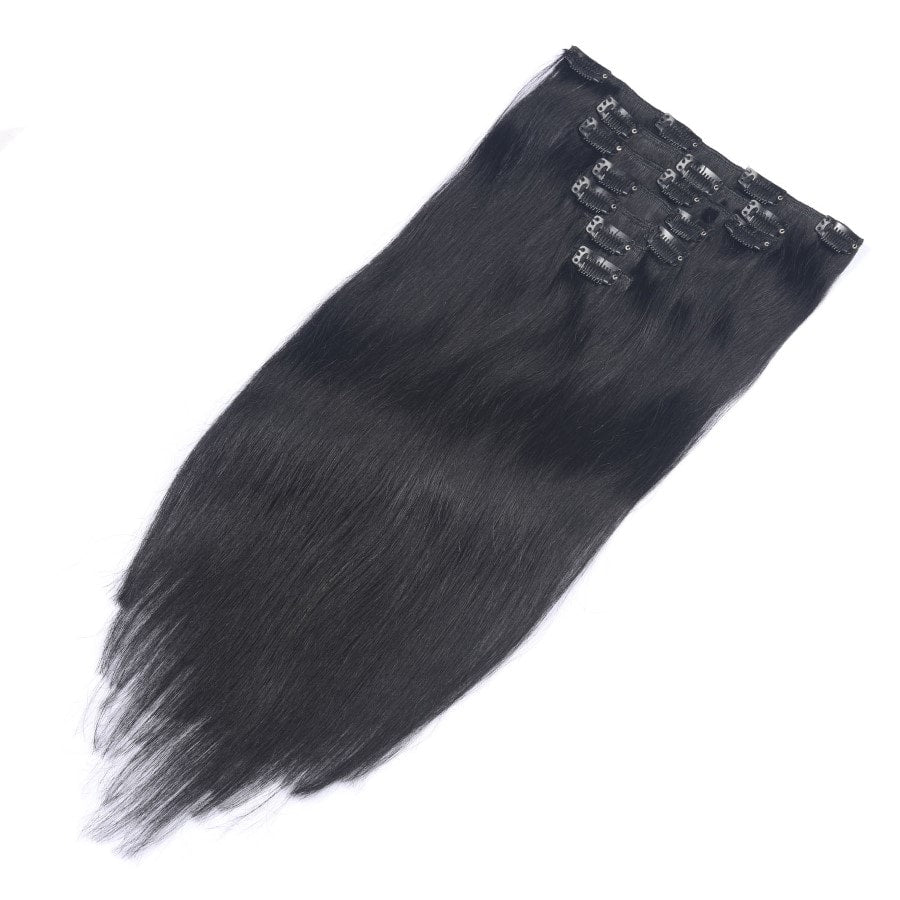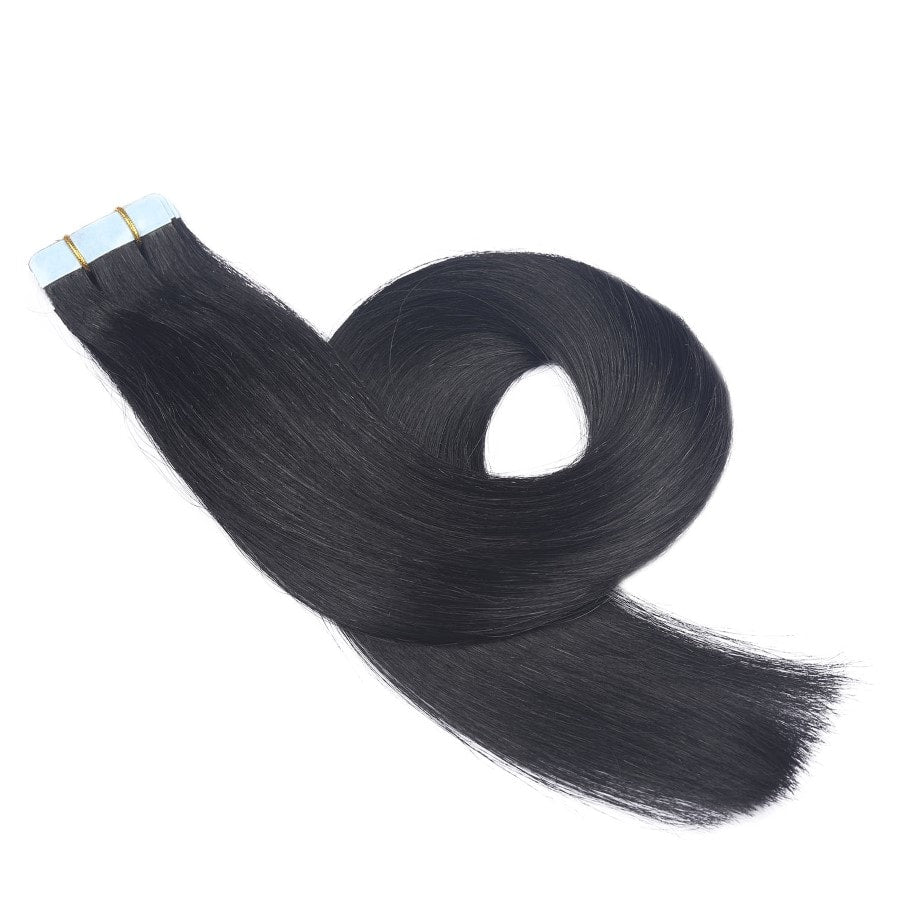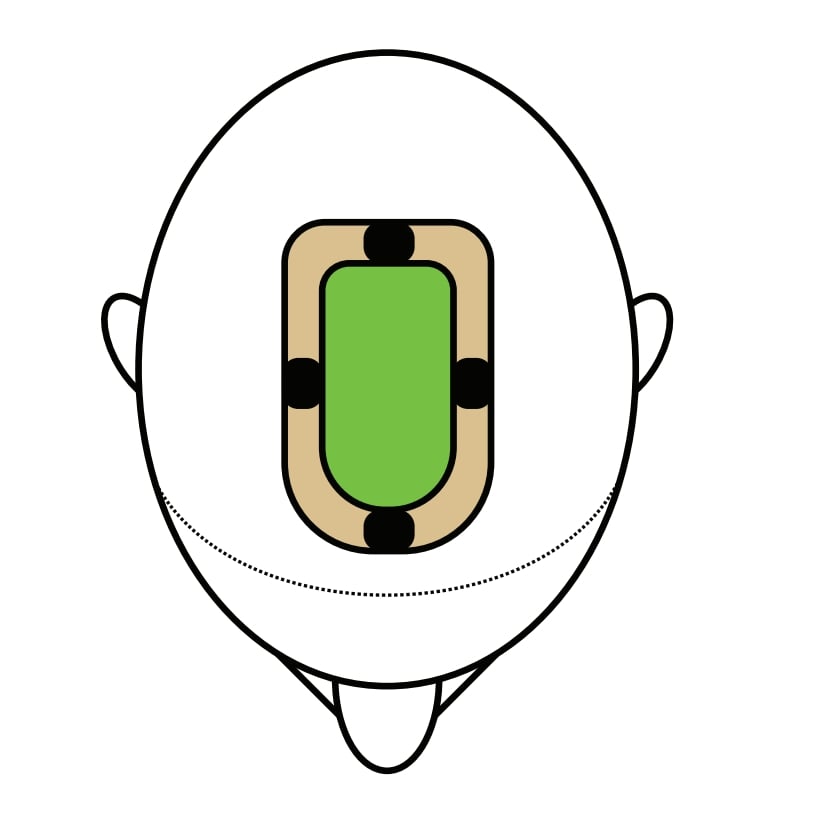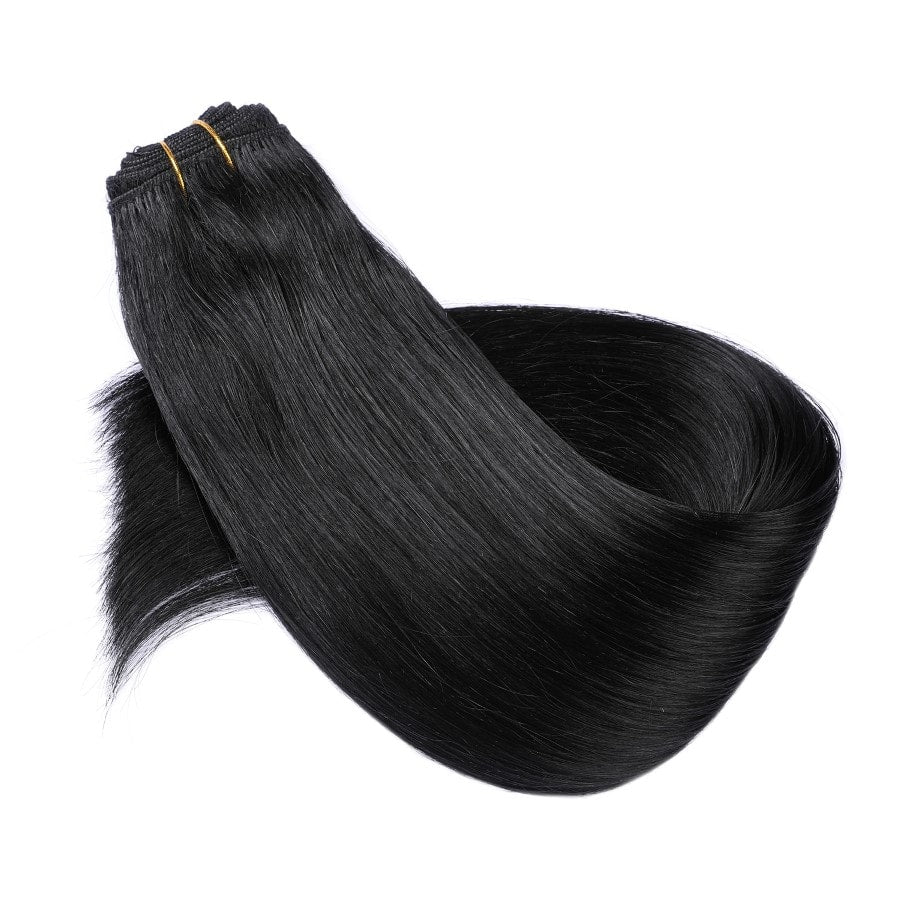Key Takeaways
- Ethical Sourcing Matters: Ensuring that human hair extensions are sourced ethically is crucial for protecting human rights, supporting fair labor practices, and promoting sustainability.
- Tara Hair’s Commitment: Tara Hair is dedicated to ethical sourcing, adhering to a comprehensive Vendor Code of Conduct that ensures fair treatment and environmental responsibility.
- Quality and Transparency: Ethical hair extensions offer high quality and transparency in sourcing, providing consumers with peace of mind and confidence in their purchase.
- Supporting Communities: Ethical practices help improve the livelihoods of hair donors and workers, contributing to community development and empowerment.
- Consumer Responsibility: By choosing ethically sourced hair extensions, consumers support positive change in the industry and promote sustainable practices.
Introduction
The use of human hair for extensions has sparked a significant ethical debate in recent years. As consumers become more conscious about the origins and production processes of the products they use, the question arises: Is it wrong to use human hair for extensions? The simple answer is NO, as long as the hair is ethically sourced. At Tara Hair, we are committed to providing only ethical hair extensions, ensuring that our practices align with the highest standards of ethical sourcing and fair treatment. In this blog post, we will explore the ethical considerations surrounding human hair extensions and highlight how Tara Hair ensures its products meet these standards.
Understanding the Ethical Dilemma
Definition of Ethical Sourcing
Ethical sourcing refers to the process of obtaining materials, such as human hair for extensions, in a manner that respects the rights and well-being of individuals involved in the production process. This includes fair labor practices, transparency, and sustainability. Ethical sourcing ensures that workers are treated with dignity and respect, and that the materials are acquired without exploiting or harming people or the environment.
Common Concerns About Human Hair Extensions
-
Exploitation of Donors: There are concerns that hair donors, especially in impoverished regions, may be exploited or coerced into selling their hair for minimal compensation. Ethical sourcing aims to ensure that donors are fairly compensated and willingly participate in the process.
-
Labor Conditions: The working conditions of individuals involved in the collection, processing, and manufacturing of hair extensions can vary significantly. Ethical sourcing requires that all workers operate in safe, healthy, and fair environments.
-
Transparency: Consumers often worry about the lack of transparency in the supply chain, making it difficult to verify the ethicality of the products they purchase. Ethical companies provide clear information about their sourcing and production processes.
-
Environmental Impact: The production of hair extensions can have environmental implications, including waste and pollution. Ethical practices include measures to minimize negative environmental impacts.
Addressing these concerns is crucial for ensuring that the use of human hair for extensions is not only acceptable but also beneficial for all parties involved. Tara Hair is dedicated to upholding these principles, as detailed in our commitment to ethical practices.
The Importance of Ethical Sourcing
Why Ethical Sourcing Matters
Ethical sourcing is crucial for several reasons:
-
Human Rights Protection: Ethical sourcing ensures that the rights of individuals involved in the production process are respected and upheld. This includes fair wages, safe working conditions, and the absence of forced or child labor.
-
Consumer Trust: As consumers become more conscious of their purchasing decisions, they seek transparency and assurance that the products they buy are ethically sourced. This trust is vital for building a loyal customer base.
-
Sustainability: Ethical sourcing practices often include measures to reduce environmental impact, promoting sustainability and responsible resource management.
-
Social Impact: Supporting ethical sourcing helps improve the livelihoods of communities involved in the supply chain, promoting economic development and social well-being.
The Impact on Communities
Ethical sourcing positively impacts the communities where hair is sourced:
-
Fair Compensation: Donors and workers receive fair compensation, which can significantly improve their quality of life and economic stability.
-
Community Development: Ethical practices often contribute to broader community development initiatives, such as education, healthcare, and infrastructure improvements.
-
Empowerment: By ensuring ethical standards, companies empower individuals and communities, fostering a sense of dignity and respect.
-
Environmental Stewardship: Communities benefit from sustainable practices that protect their local environment, ensuring long-term health and viability of natural resources.
At Tara Hair, we recognize the importance of these factors and are committed to ethical sourcing as a core value of our business. Our practices ensure that we not only provide high-quality hair extensions but also contribute positively to the communities and environments from which we source our products.
Tara Hair’s Commitment to Ethical Practices
At Tara Hair, our commitment to ethical practices is unwavering. We have implemented a comprehensive Vendor Code of Conduct to ensure that our suppliers adhere to the highest standards of ethics and fairness. Here are the key components of our ethical practices:
Vendor Code of Conduct
Our Vendor Code of Conduct outlines the ethical standards we require from all our suppliers. This code ensures that all aspects of our sourcing process are conducted with integrity and respect for human rights.
Compliance with Laws and Regulations
Vendors are expected to comply with all applicable laws and regulations, including labor and employment laws. This compliance ensures that all workers are treated fairly and that business practices are conducted ethically.
Respectful Workplaces
Our Zero-Tolerance Issues include:
- No Forced Labor: Employment must be freely chosen, without any form of forced or bonded labor.
- No Child Labor: Workers must be at least 15 years old or meet the legal minimum age.
- No Abuse and Unfair Disciplinary Measures: All workers must be treated with respect and dignity, without any form of abuse or harassment.
Fair Treatment of Workers
- No Excessive Working Hours: Vendors must comply with laws regarding working hours and ensure that workers are not subjected to excessive working hours.
- Regular Employment: Employment relationships must be clear and documented, providing workers with written contracts that detail their rights and obligations.
- No Discrimination: There must be no discrimination in hiring, remuneration, or any other aspect of employment.
- Compensation & Benefits: Workers must be paid fairly and on time, with wages meeting or exceeding legal requirements.
Health & Safety as a Priority
Vendors must provide safe and healthy working conditions, including proper safety training, adequate facilities, and compliance with health and safety regulations. This ensures the well-being of all workers involved in the production process.
Environmental Responsibility
Vendors are required to incorporate environmental safeguards in their operations, comply with environmental laws, and minimize negative environmental impacts. This includes managing energy use, waste, and hazardous materials responsibly.
Collaborative Partnerships
- Confidential and Proprietary Information: Vendors must protect confidential and proprietary information and respect intellectual property rights.
- Effective Management Systems: Vendors must establish documented policies and procedures to ensure compliance with our Code of Conduct.
- Subcontracting: Any subcontracting must be approved by Tara Hair, and subcontractors must comply with our ethical standards.
- Compliance & Grievance Mechanisms: Vendors must maintain adequate documentation to demonstrate compliance and cooperate with audits and inspections.
By enforcing this comprehensive Vendor Code of Conduct, Tara Hair ensures that our products are sourced ethically and responsibly, providing our customers with the assurance that they are purchasing high-quality, ethical hair extensions.
How to Identify Ethical Hair Extensions
Key Indicators of Ethical Hair Extensions
When shopping for hair extensions, look for the following indicators to ensure they are ethically sourced:
- Transparency: Reputable companies will provide detailed information about their sourcing practices, including where and how the hair is obtained.
- Certifications: Look for certifications or endorsements from recognized ethical and fair trade organizations.
- Vendor Code of Conduct: Ethical companies will have a clear vendor code of conduct that outlines their commitment to fair labor practices and environmental responsibility.
- Fair Compensation: Ensure that the company compensates hair donors fairly and treats all workers involved in the production process with respect and fairness.
- Environmental Responsibility: Companies should have policies in place to minimize their environmental impact, such as sustainable sourcing and waste management practices.
Questions to Ask Your Supplier
To further ensure that the hair extensions you are purchasing are ethical, consider asking your supplier the following questions:
-
Where is the hair sourced from?
- A reputable supplier should be able to provide specific details about the origins of the hair.
-
How are the hair donors compensated?
- Ensure that donors are fairly compensated for their hair and that their participation is voluntary.
-
What labor practices are in place for workers?
- Confirm that the company adheres to fair labor practices, including safe working conditions and fair wages.
-
Do you have a Vendor Code of Conduct?
- A clear and detailed vendor code of conduct is a strong indicator of the company's commitment to ethical sourcing.
-
What environmental practices do you follow?
- Ask about the company's policies on environmental sustainability, including how they manage waste and reduce their carbon footprint.
By asking these questions and looking for these key indicators, you can make informed decisions and choose hair extensions that align with your values. At Tara Hair, we are dedicated to providing transparent and ethical products, ensuring that our customers can trust the quality and integrity of our hair extensions.
The Benefits of Choosing Ethical Hair Extensions
Quality Assurance
When you choose ethical hair extensions, you are assured of high-quality products. Ethical sourcing often involves rigorous quality control measures, ensuring that the hair is processed and handled with care. This results in hair extensions that are not only beautiful but also durable and long-lasting.
Supporting Ethical Practices
By purchasing ethically sourced hair extensions, you support fair labor practices and contribute to the well-being of hair donors and workers in the supply chain. This helps combat exploitation and promotes a more equitable and just industry. Your choice makes a positive impact on the lives of many people involved in the production process.
Peace of Mind for Consumers
Knowing that your hair extensions are sourced ethically provides peace of mind. You can feel confident that your purchase does not contribute to unethical practices such as forced labor, child labor, or environmental harm. This ethical assurance allows you to enjoy your hair extensions with a clear conscience.
Promoting Sustainable Practices
Ethical hair extensions are often produced with sustainability in mind. Companies that prioritize ethical sourcing tend to adopt environmentally friendly practices, reducing waste and minimizing their carbon footprint. By choosing ethical hair extensions, you are supporting sustainable practices that benefit the planet.
Enhanced Customer Loyalty
Customers today are increasingly aware of ethical issues and prefer to support brands that align with their values. By offering ethical hair extensions, companies like Tara Hair build trust and loyalty with their customers. This commitment to ethical practices enhances the brand’s reputation and fosters long-term customer relationships.
At Tara Hair, we are proud to provide only ethically sourced hair extensions. Our commitment to ethical practices ensures that our customers receive high-quality products while supporting fair and sustainable practices in the industry. When you choose Tara Hair, you are making a responsible and ethical choice.
Conclusion
In conclusion, the ethical dilemma of using human hair for extensions is resolved when you choose ethically sourced products. At Tara Hair, we ensure that all our hair extensions are obtained through fair, transparent, and responsible practices. Our comprehensive Vendor Code of Conduct guarantees that every aspect of our supply chain, from hair donation to production, adheres to the highest ethical standards. By choosing Tara Hair, you are not only investing in premium quality hair extensions but also supporting ethical practices that respect human rights, promote fair labor, and protect the environment.
Ethical sourcing matters, and your choices as a consumer can make a significant difference. Trust Tara Hair to provide you with the best, ethically sourced hair extensions that you can wear with pride and peace of mind.
FAQ
-
What is ethical sourcing for hair extensions?
- Ethical sourcing ensures that hair is obtained through fair, transparent, and responsible practices, respecting the rights of donors and workers.
-
Why is it important to choose ethical hair extensions?
- Choosing ethical hair extensions supports fair labor practices, human rights, and environmental sustainability, ensuring a positive impact on communities and the planet.
-
How can I verify if hair extensions are ethically sourced?
- Look for transparency in sourcing, certifications from recognized ethical organizations, and a clear vendor code of conduct from the supplier.
-
What does Tara Hair do to ensure ethical sourcing?
- Tara Hair follows a comprehensive Vendor Code of Conduct, ensuring compliance with laws, fair labor practices, environmental responsibility, and transparent sourcing.
-
Are ethical hair extensions of higher quality?
- Yes, ethical hair extensions often undergo rigorous quality control measures, ensuring high-quality, durable, and long-lasting products.
-
How does ethical sourcing impact hair donors?
- Ethical sourcing ensures that hair donors are fairly compensated and participate voluntarily, improving their quality of life and economic stability.
-
What are the environmental benefits of choosing ethical hair extensions?
- Ethical companies adopt sustainable practices, reducing waste and minimizing their carbon footprint, contributing to environmental conservation.
-
Can I trust Tara Hair’s ethical practices?
- Yes, Tara Hair is committed to ethical sourcing and adheres to strict ethical standards, providing transparent and responsible products.
-
What should I ask my supplier to ensure they follow ethical practices?
- Ask about the origins of the hair, compensation for donors, labor practices, the vendor code of conduct, and environmental policies.
-
How does supporting ethical hair extensions benefit consumers?
- Consumers gain peace of mind, knowing their purchase supports fair labor, ethical practices, and sustainability, while receiving high-quality products.






